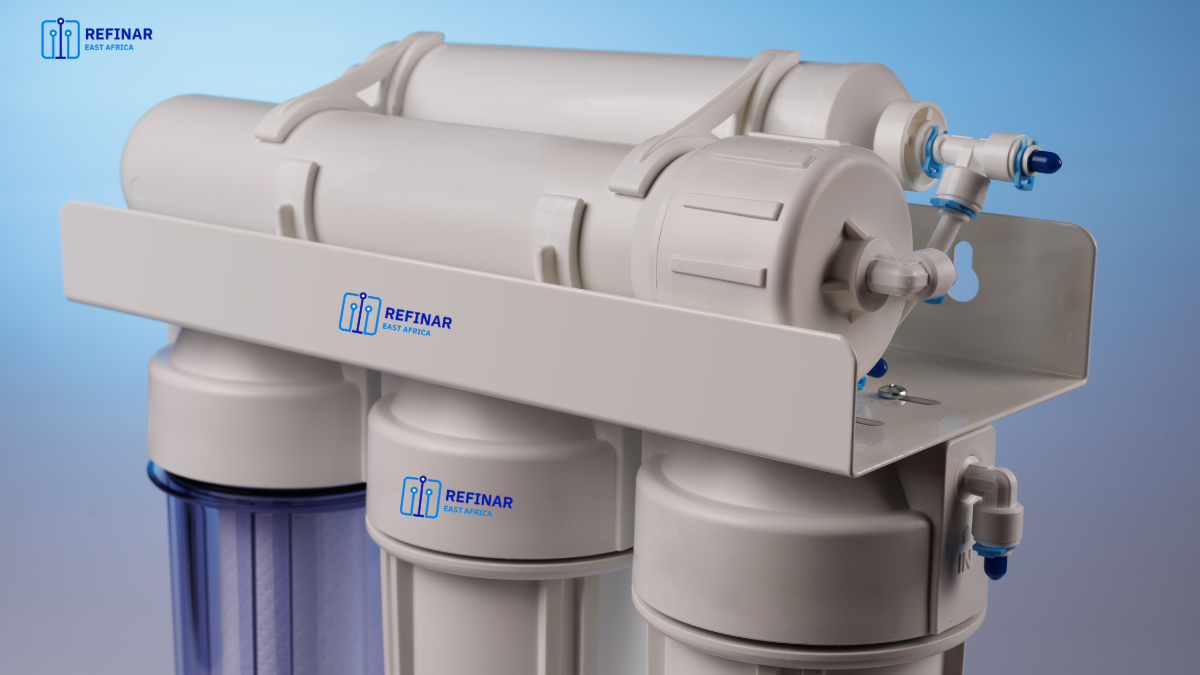Without Doubts access to clean and safe drinking water is a top priority for everyone and every household. But how do we make sure we maintain a steady flow of clean water every day? That’s where water filters come in to help us solve the mystery. However There are various types of water filters available on the market, and understanding how they work and which one suits your needs best is essential. In this article, we discuss different types of water filters and how they work. This will help you make an informed decision to get the best water filter that suits your needs.
What is a water filter?
A water filter is a device that helps to remove impurities from water. These impurities include sediment, dirt, rust, chlorine, lead, mercury, and even organic chemicals like herbicides or pesticides, bacteria, viruses, and parasites. However, while selecting a water filter, keep in mind that some are less effective than others in removing certain impurities according to the effectiveness of the filtration technology they utilize.
Types of water filters and How do they work?
Based on your water source and what contaminants you want to remove, it is important to have your water tested. This is to determine what water filter will work well for you and offer you the best water quality you are looking for. Here are the types of water filters you should know about:
- 1. Reverse osmosis
- 2. Activated carbon
- 3. Ion Exchange
- 4. Ultraviolet Filters
- 5. Mechanical filters
Each of the above water filters handles specific water quality concerns and let’s discuss each one of them deeply to help you find the perfect one.
Reverse osmosis
When it comes to water treatment and purification these filters always take the lead. Thanks to their advanced technology and ability to remove a wide range of contaminants. In this game, they employ a semi-permeable membrane to separate contaminants from the water, ensuring that only pure water molecules pass through. The process of reverse osmosis involves applying pressure to the water, forcing it through the membrane, and leaving behind impurities such as bacteria, viruses, dissolved salts, and other contaminants.
Activated carbon
When we talk of removing water contaminants, activated carbon is a very effective filtration material used in water filters to enhance water quality. Activated carbon is made from charcoal and goes through a unique treatment that causes infinite small holes to open up on its surface, greatly increasing its surface area. Because of its porous structure, activated carbon can capture and absorb a wide range of impurities found in water. Activated carbon filters are an efficient way to remove chemical contaminants like pesticides, chlorine, and organic compounds from water systems, as well as physical contaminants like silt and particles. Activated carbon not only eliminates unwanted substances from water but also helps improve its flavor and odor
Ion Exchange
Ion exchange filters are useful in locations where the water includes significant levels of calcium and magnesium ions, sometimes known as hard water minerals. These filters employ resin beads that are charged with sodium or potassium ions. As water moves through the filter, the resin beads release sodium or potassium ions into the water, exchanging them for the calcium and magnesium ions that cause water hardness. This technique softens the water, which prevents scale buildup in pipes, appliances, and fixtures. Ion exchange water filters help to enhance water quality, lengthen the life of plumbing systems, and increase the efficiency of water-dependent household appliance
Ultraviolet Filters
UV filters use ultraviolet light to disinfect and sterilize water. These filters work on the idea that UV radiation destroys the DNA of microorganisms, successfully neutralizing bacteria, viruses, and other pathogens in the water. UV water filters typically include a UV light enclosed within a protective chamber through which water passes. As water runs over or around the UV lamp, the powerful UV radiation penetrates the cells of microorganisms, rendering them unable to reproduce and deactivate. This technique eliminates hazardous bacteria without changing the taste, color, or chemical content of the water.
Mechanical filters
These filters are made to physically extract particles and solid particles from water. Mechanical filters work by physically trapping and retaining impurities, in contrast to other types of filters. Depending on the particular use, these filters can be designed as mesh screens, sand filters, or sediment filters. A mechanical barrier prevents bigger pollutants and sediments from passing through the filter while water flows through, guaranteeing that only clean water passes through. In the filtration process, mechanical filters are especially useful for preserving downstream components, increasing water clarity, and avoiding clogs in plumbing systems.
How to Choose the Right Water Filter for Your Home
With so many options available on the market, selecting the ideal water filter for home use can be hectic. Consider getting your water tested to identify specific contaminants that need to be taken care of. This will help you determine which type of water filter is best suited for your needs. Also, other factors you should consider include your budget, water usage, and convenience.
Where can I buy a water filter for home and commercial use in Kenya?
In Kenya, if you are in the market for a water filter that meets quality standards, either for home use or commercial use, Refinar East Africa is your go-to company for all types of water filters. Not only that, we also provide expert guidance based on your water quality and what you are looking for.
For inquiries talk to us at 0707075702 or info@refinareastafrica.com


